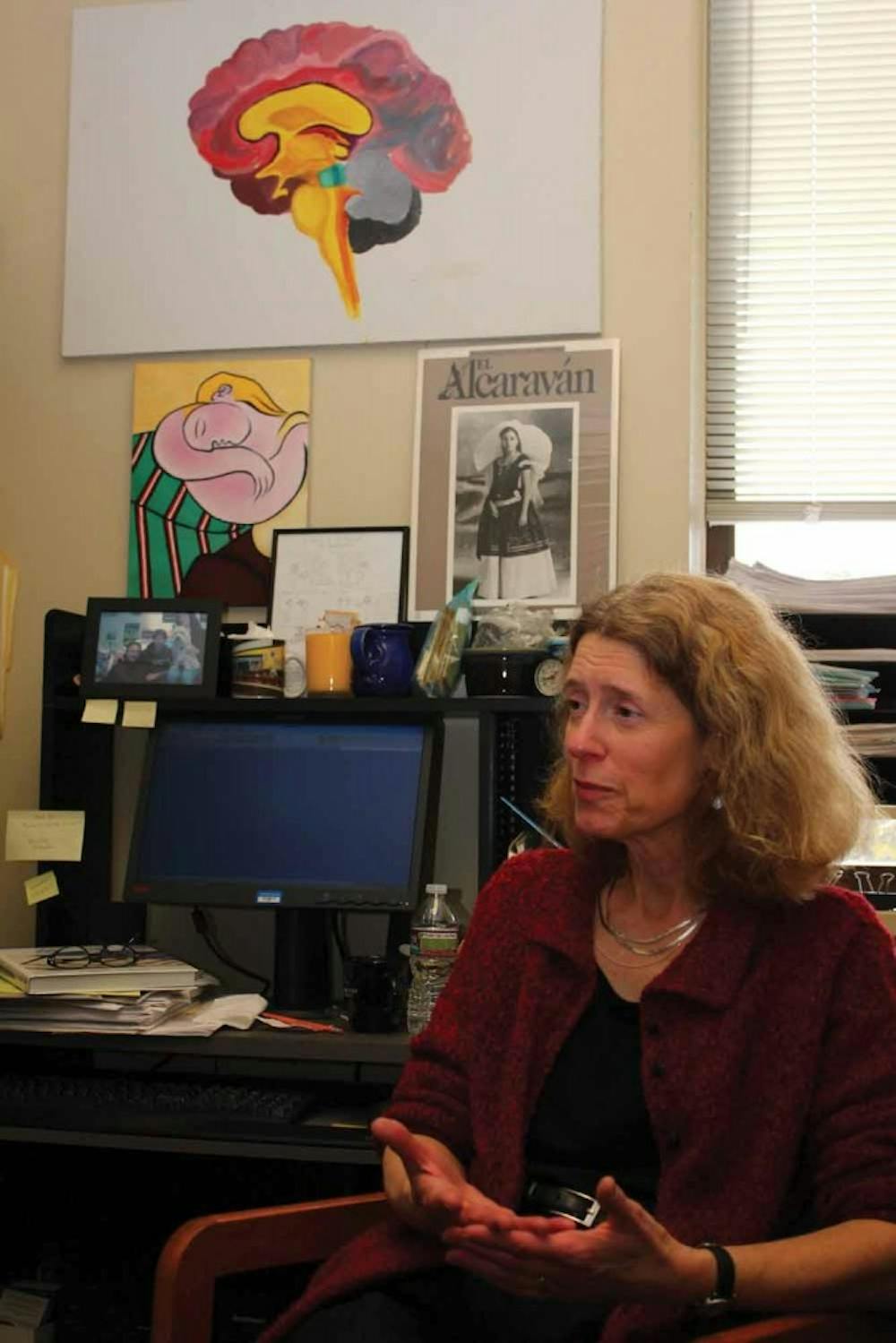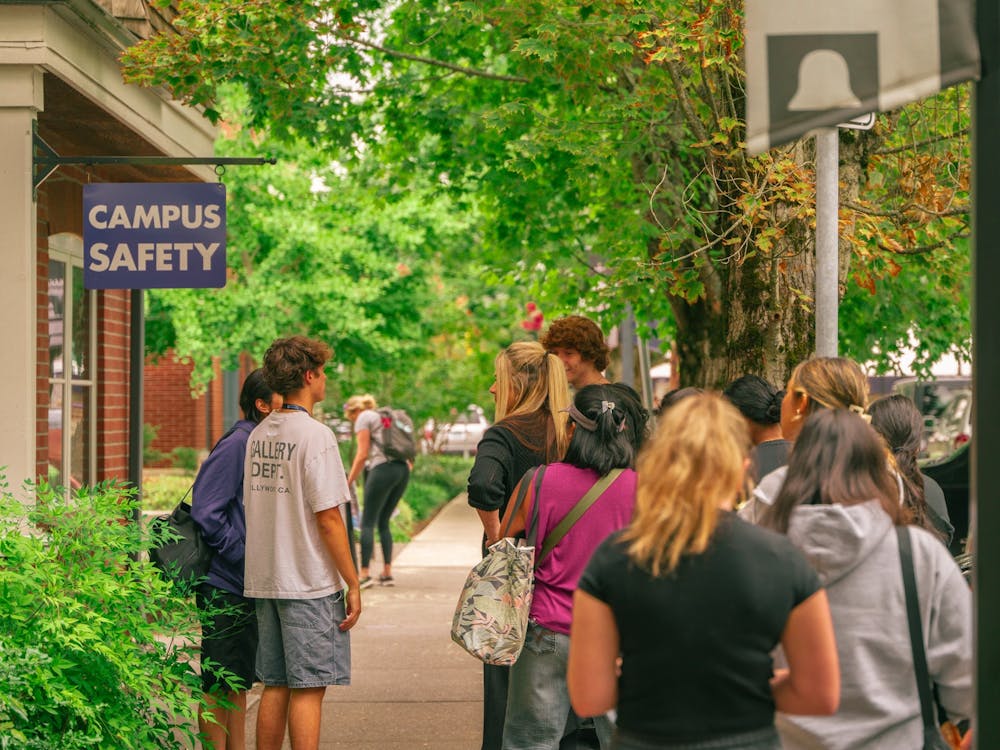A recent study has found testing yourself repeatedly now might help you retain more information on tests later
(Scott Chia -- The Beacon)
By Jocelyne LaFortune, Staff Writer -- lafortun12@up.edu
Which do you think is the more effective learning technique: reading a paragraph five times repeatedly or reading it twice and then trying to recall for yourself the important information?
According to a recent study by psychology professor Susan Baillet, most people will retain more information using the second strategy.
Baillet is conducting a study with UP students on the ‘test effect,' a method in which material is learned through self-testing, rather than prolonged study.
Self-testing is a method in which students attempt to recall learned information before actually being tested on it, according to Baillet.
"The idea is that we will retain more information by self-testing than if we simply continued to study," Baillet said. "It is something I've been interested in for a long time because of the practical applications to studying and learning in a college environment."
Students were not told the test effect prior to being tested. Rather, they thought they were being tested on their ability to remember faces and names. They were informed of the aim of the study after their final day of participation.
On the first day of the study, students were shown a total of 40 face and name pairs. They looked at four sets for six seconds each. Then, they were presented with a series of numbers and asked to add the numbers mentally and give a total sum. This process was repeated 10 times. After seeing all of the pairs once, students were shown the faces again. Some were paired with the correct names, and others were left blank. If the name was not given, students were asked to fill in the correct name.
The students then waited 48 hours and returned for a final day of testing. They were asked to recall as many name and face pairs as they could.
"Students often don't remember much after 48 hours," Baillet said. "In the future I'd like to try a 24-hour waiting period."
Freshman Catherine Bury found it difficult to recall the correct face and name pairs.
"I only remembered three, but I heard someone remembered them all," Bury said. "If I had a memory like that, I'd never have to study!"
Although the rate of recall after 48 hours is low, Baillet was surprised by the results of the study.
"I am a little surprised that exposure to a face-name pair for just a few seconds, followed by the attempt to recall the name has resulted in better memory for the name 48 hours later," Baillet said. "Overall the recall is low, but we still see the test effect."
According to Baillet, her study is an extension of a similar study conducted by Shana Carpenter, a psychology professor at Iowa State University. In her study, Baillet asks students to explain their reasoning behind their memorization, while Carpenter did not.
So far, Baillet's study has found students remembered more face and name pairs if they were asked to try to recall the names just after seeing them for the first time.
"So the next time you study, read and review. Then put everything away and try to write everything down," Baillet said. "I predict that you will do better on the test than if you spent that time studying."
Senior Michelle Dasse assisted Baillet throughout the study by helping develop the program and running the actual testing.
"Dr. Baillet knew I was interested in getting involved in research, so she e-mailed me to see if I wanted to help with this," Dasse said. "It has been a great experience."
The study has included about 50 students so far. Students in General Psychology 101 receive credit for participating in the study.
"We are still looking for more participants," Dasse said. "You don't have to be ‘good' at it or anything."








